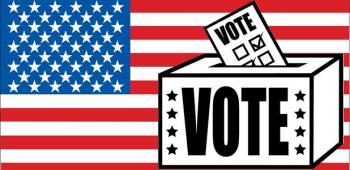
4 proposed constitutional amendments on Oct. 24 ballot
After facing a daunting list of 14 proposals in 2014, voters this year should feel some relief in having only four proposed constitutional amendments on the ballot.
These proposal were approved by legislators during the 2015 regular session. As required for passage of constitutional amendments, each bill received at least a two-thirds vote in the House of Representatives and in the Senate and now needs a majority vote at the polls.
The governor cannot veto proposals for constitutional amendments.
The following review of the proposals was prepared by the Public Affairs Research Council.
• Proposal No. 1: Creates a new transportation projects fund and restructures the rainy day fund.
A vote for would steer state mineral revenue to a new transportation projects fund and restructure the Budget Stabilization Fund.
A vote against would leave the current revenue flow and Budget Stabilization Fund intact.
The main purpose of this proposal is to create a constitutionally protected fund for state transportation projects. The amendment converts the state’s Budget Stabilization Fund — also known as the Rainy Day Fund — into two companion subfunds: one to fulfill the functions of a Budget Stabilization Fund and the other to become a new transportation fund.
The amendment does not raise taxes. It does not change the state’s existing Transportation Trust Fund, which will continue to be the primary source of state infrastructure spending.
Basically, the amendment would take a portion of the state’s mineral revenue that would otherwise be placed in the Budget Stabilization Fund and send that money to the new transportation fund.
• Proposal No. 2: Allows the state treasurer the option of investing in the state infrastructure bank.
A vote for would allow the treasurer to invest public funds in a state infrastructure bank.
A vote against would require the newly created infrastructure bank to rely on other financing.
This amendment would provide another option for financing the infrastructure bank. It would allow the state treasurer to invest with the bank.
The state always has money that needs to be invested, such as cash in dedicated funds or tax revenue that is not immediately spent. The treasurer already invests theses state monies in interest-earning bonds or other financial tools, and this amendment would give the treasurer a new option by allowing investments in the new infrastructure bank.
• Proposal No. 3: Provides new guidelines for legislation in a fiscal session.
A vote for would broadly define what kind of tax and revenue bills can be filed in a legislative fiscal session.
A vote against would leave in place the specific list of allowable tax legislation for fiscal session.
This amendment would allow lawmakers in a fiscal session to “legislate with regard to the dedication of revenue: and to “legislate with regard to taxes.”
The list of various tax breaks would be deleted although these types of instruments still would be allowed under the umbrella phrasing.
The impact of the proposed change would be to make clearer the intended broad grant of authority to the Legislature as to taxation by removing various specific terms and replacing them with sweeping language. These provisions allow wider parameters in a fiscal session for the types of tax and revenue bills that can be considered in an unlimited fashion, especially including bills dealing with tax administration and other tax matters not directly related to raising taxes.
A bill fitting this category would not have to count as one of a legislator’s five “general” bills pre-filed for a fiscal session. Although the amendment removes specifics, it does add a special type of instrument: it allows fiscal session legislation “with regard to rebates.”
The amendment makes no changes in what can or cannot happen during a general session.
• Proposal No. 4: Allows local governments to tax property within their jurisdictions that is owned by local or state governments outside of Louisiana.
A vote for would require states or local governments outside of Louisiana to pay taxes on properties they own in Louisiana.
A vote against would leave the question to the courts, which recently ruled that state or local governments outside Louisiana are exempt from property taxes.
This proposed amendment says that “land or property owned by another state or owned by a political subdivision of another state shall not be exempt” from property taxes.
Although some stakeholders contend that the Louisiana Constitution already disallows such an exemption, Louisiana courts recently decided otherwise.
This amendment would make it clear that Louisiana assessors and sheriffs would be required to assess values and collect taxes in their jurisdictions on property owned or used for public purposes by other states or local governments of other states.
(For more in-depth information regarding the proposed constitutional amendments, visit www.parlouisiana.org.)
- Log in to post comments
